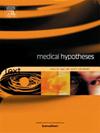Ketogenic Diet as a Brain-targeted Therapy in Psychogenic Nonepileptic Seizures: A Neuroimaging Findings-based Nutritional Hypothesis
IF 2.1
4区 医学
Q3 MEDICINE, RESEARCH & EXPERIMENTAL
引用次数: 0
Abstract
Psychogenic nonepileptic seizures (PNES) are non-epileptic events characterized by altered consciousness and motor activity that mimic epileptic seizures but lack abnormal brain discharges. Despite their prevalence, PNES remain diagnostically challenging, often coexisting with psychiatric and medical conditions. While ketogenic diets (KDs) have shown potential in treating neurological and psychiatric disorders, their impacts on PNES are underexplored. KDs, by shifting metabolism toward lipid oxidation and producing ketone bodies, offer neuroprotective and anti-inflammatory benefits, which may modulate brain connectivity and neurotransmitter balance. Neuroimaging studies, including electroencephalography, functional magnetic resonance imaging, and diffusion tensor imaging, have demonstrated altered brain activity and connectivity in PNES, particularly in regions responsible for emotional regulation, executive function, and motor control. The KD’s ability to restore these disrupted patterns through its anticonvulsant, anti-inflammatory, and neuroprotective properties makes it a potential treatment option for PNES. Preliminary studies, including a pilot trial, have shown promising results in reducing PNES frequency with KD use. However, further research with larger sample sizes and more rigorous methodologies is necessary to confirm these findings. This article proposes KD as a viable treatment for PNES, emphasizing the need for personalized, multidisciplinary approaches and the importance of using neuroimaging techniques and monitoring for potential metabolic complications to ensure long-term safety and efficacy.
求助全文
约1分钟内获得全文
求助全文
来源期刊

Medical hypotheses
医学-医学:研究与实验
CiteScore
10.60
自引率
2.10%
发文量
167
审稿时长
60 days
期刊介绍:
Medical Hypotheses is a forum for ideas in medicine and related biomedical sciences. It will publish interesting and important theoretical papers that foster the diversity and debate upon which the scientific process thrives. The Aims and Scope of Medical Hypotheses are no different now from what was proposed by the founder of the journal, the late Dr David Horrobin. In his introduction to the first issue of the Journal, he asks ''what sorts of papers will be published in Medical Hypotheses? and goes on to answer ''Medical Hypotheses will publish papers which describe theories, ideas which have a great deal of observational support and some hypotheses where experimental support is yet fragmentary''. (Horrobin DF, 1975 Ideas in Biomedical Science: Reasons for the foundation of Medical Hypotheses. Medical Hypotheses Volume 1, Issue 1, January-February 1975, Pages 1-2.). Medical Hypotheses was therefore launched, and still exists today, to give novel, radical new ideas and speculations in medicine open-minded consideration, opening the field to radical hypotheses which would be rejected by most conventional journals. Papers in Medical Hypotheses take a standard scientific form in terms of style, structure and referencing. The journal therefore constitutes a bridge between cutting-edge theory and the mainstream of medical and scientific communication, which ideas must eventually enter if they are to be critiqued and tested against observations.
 求助内容:
求助内容: 应助结果提醒方式:
应助结果提醒方式:


